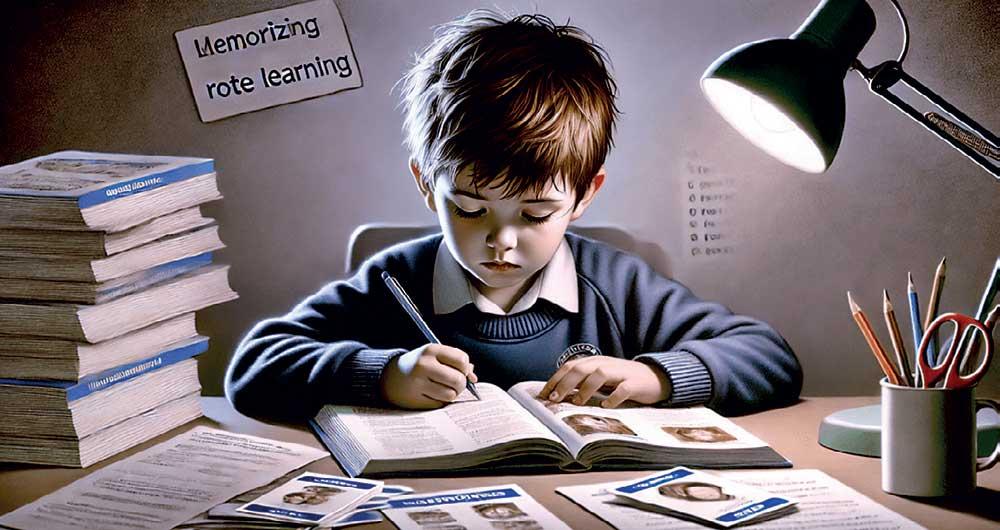
Is rote learning destroying our ability to think and grow?
For years, students in Sri Lanka following the national curriculum have been taught to ace their O-level and A-level exams by memorizing textbook content and even marking schemes provided by the Department of Examinations. Rote learning has become a big part of the typical school experience. While the education system does a great job maintaining Sri Lanka’s literacy rate at 92%, high literacy alone does not mean students develop important skills like problem-solving, communication, creativity, or teamwork – skills considered by employers to be essential. This creates a gap between academic success and being ready for the workplace, leading to frustration for both employers and new employees when school leavers enter the job market.
As an employer, how frequently do you get irritated with your under 30 employees?
Do they not understand that in certain circumstances a normal phone call is more appropriate than a WhatsApp message? Are they overly sensitive (perhaps even bursting into tears!) when pulled up for missing deadlines? Do they lack the thirst to learn new things? Do they expect 6-figure salaries straight out of college without the experience to go with it? What do any of the above have to do with our education system and rote learning in particular? Let us first take a closer look at what rote learning is.
The Fine Line: Memorisation vs Rote Learning
Rote learning is a memorisation technique based on repetition. What is so different about rote learning? Is it not simply memorisation by a new and fancy name? It is, in actual fact, not. While both memorisation and rote learning entail recalling information, memorisation attempts to store information in one’s memory with the objective of recalling it in the future, possibly even with knowledge of the specific context in which it is to be recalled, whereas rote learning commits facts to memory without much, or even at times any, effort to relate that information to prior knowledge, or see its larger relevance. Such a lack of comprehension may hinder the acquisition of critical thinking abilities and the capacity to apply knowledge in new or unknown contexts. To the majority of students, the line between memorisation and rote learning may be a blurry one. However, though subtle, the differences between the two have considerable significance and it behoves students and parents alike to appreciate the distinction.
The ability to memorise plays a significant role in cognitive development, particularly in the early stages of learning.
Is memorisation inherently bad for a child’s development?
Not at all. In fact, memorisation has its place in the learning process. The ability to memorise plays a significant role in cognitive development, particularly in the early stages of learning. Starting from grade one, children need to be given the opportunity to memorise a few things such as basic mathematical facts, vocabulary, and concepts. This helps improve their power of memory as well as recall.
This fundamental ability also helps build the process of higher order thinking and problem solving. When children memorise, they develop working memory and attention, which are both critical skills for future more complicated tasks. Memorisation also provides deeper learning with a structure, allowing cognitive resources to be freed up for imagination and analysis, which eventually contributes to cognitive development. Thus, incorporating memorisation into early schooling plays a role in laying the groundwork for future academic success and lifelong learning.
How is rote learning any different?
Rote learning, unlike memorisation, often impacts a student’s overall personal growth. While memorisation in bits is beneficial when accompanied by understanding, rote learning suppresses creativity, innovation, and adaptability – essential qualities in today’s job market.
- Superficial understanding
If students merely focus on memorising content, they tend to lack comprehensive understanding and subsequently fail to apply their learned knowledge to real life experiences and situations. For instance, a student may memorise the process of photosynthesis and successfully regurgitate that information in a written paper. However, what is the point if he or she cannot relate the knowledge of photosynthesis to the bigger picture and see its impact on agricultural practices? Likewise, a student may memorise an entire timeline of historical dates related to World War II, but what use if the context of the political decisions involved with the same timeline is not understood? History may very well then repeat itself! Students who learn through rote memorisation find it challenging to think outside of the box, or tackle problems from different perspectives. For instance, students may quite easily memorise step by step procedures for solving math problems but will find themselves at a loss when it comes to budgeting or planning their personal finances. Students must be prompted to ask questions of “why” and “how”, or else they will miss out on the chance to look in-depth at issues and connect the proverbial dots.

- Temporary retention
A 2014 article by Tina Woolcock in The Times shared research findings that showed that even A-grade students could remember only two-fifths of their A-level syllabus during their first week of university. The research went on to show that “teaching to the test” was the underlying cause for undergraduates’ failings. Rote learning with its focus on performance, i.e. success in exams, rather than mastery, is thus to be blamed. Short term memorisation can enhance test results, but it does not equip students with the ability to deal with future issues that require long term memory and understanding.
If students merely focus on memorising content, they tend to lack comprehensive understanding and subsequently fail to apply their learned knowledge to real life experiences and situations.
- Limited application in the job market
Employers are now increasingly seeking workers who possess problem solving skills, creativity, and critical thinking. Sadly, students who have experienced rote learning are likely to be lacking in these qualities since they have been educated mainly to memorise and replicate information, rather than comprehend and implement it. Hence, most Sri Lankan graduates cannot keep pace with the needs of an ever-globalising job market that appreciates creativity and flexibility. Worse still, they may shy away from trying to acquire new knowledge or improve their employability skills, solely because it requires them to step out of their comfort zones! Getting back to some of the “frustrations” outlined at the start of this article, let’s see the contribution made by rote learning. Rote learning tends to prioritise factual recwall over developing soft skills like emotional intelligence and situational awareness. The new generation of employees emerging from their digital cocoons thus lack practical communication skills and are frequently unable to comprehend when a traditional phone call to their boss carries more weight than the WhatsApp message that they gravitate to by default. Similarly, they tend to be incapable of valuing the years of experience that more senior employees in the workplace are likely to have built up as a result of dealing with practical, every day, real life problems (or at least until they have to face an issue themselves!). Rote learning has caused those entering the job market to lack the enthusiasm to think outside the box and come up with innovative ideas and solutions. Coupled with their access to Google and the entire world of AI, today’s young adults lack the curiosity to seek new knowledge. Rather, rote learning has created a generation of employees who would rather skip work than apply themselves to finish a deadline because it is simply too much work for them.
Adapting to the Needs of Today’s Job Market: A Call to Action for Parents and Society!
Rote learning fosters shallow knowledge, making employees unable to tackle real challenges. The lack of critical thinking and problem solving can lead to ineffective communication, lack of initiative, and difficulty with constructive criticism. Coupled with the desire for instant gratification, emotional immaturity, and a lack of motivation for continuous learning, employers face a recipe for disaster with new employees! In short, while rote learning has influenced education for decades, its limitations are clear in a rapidly changing workforce. Employers seek workers who can analyse problems and apply learned skills to real-life situations. It is therefore imperative that traditional education systems move towards newer models of learning that are more appropriately geared towards meeting the requirements of the 21st century. Encouraging inquiry-based learning, curiosity, and an appreciation for knowledge over memorisation will better equip students for the challenges of a digital era. By developing a culture of innovation, critical thinking, and lifelong learning, we can ensure that the next generation is not only armed with facts, but also with the capacity to change, learn, and succeed in an ever-evolving world. Moreover, we can help usher into the workplace a younger generation that earns the respect rather than the scorn of their respective employers. It is long past the hour to change our education approaches for the benefit of our children’s personal growth and, consequently, our society’s future!











